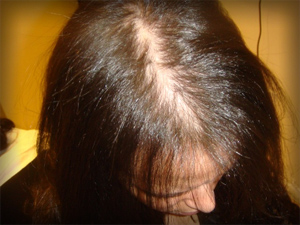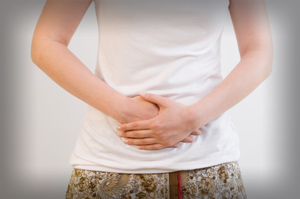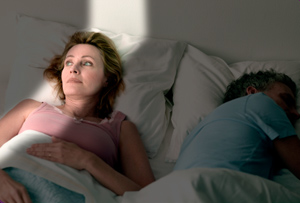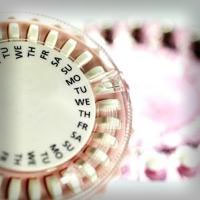Hypothyroid Symptoms in Women
Hypothyroid symptoms are more common among women than men. This is largely due to estrogen’s role in suppressing thyroid function and women naturally have far more estrogen than men. Because of this, the hypothyroid symptoms in women tend to be more correlated with hormonal cycles.
Hypothyroid symptoms in women are especially noticeable during adolescence, pregnancy, menopause, and peri-menopause. This is because these are the typical times when estrogen and progesterone levels are changing within a woman’s body. In fact, women who have a history of female hormone imbalance or menstrual issues almost always develop hypothyroidism at some point in life.
Unfortunately, many hypothyroid symptoms in women go undetected or misdiagnosed. The tests for thyroid hormones are not always accurate; thus leading many women who are suffering from low thyroid function to suffer a great deal as their health and sense of well-being decline steadily. This can be a frustrating and fearful experience.
As the years pass, these women will find themselves taking a long list of medications and prescriptions for various ailments, when in reality; the answer is that they have been suffering all along from one or more of the common hypothyroid symptoms in women. The fact is, hypothyroid symptoms in women can be quite severe and sometimes life changing if not addressed.
It is therefore, crucial that women pay close attention to their bodies and especially their thyroid function and follow the right hypothyroidism treatment plan when necessary. The best way to determine if you have a low thyroid is to determine if you are suffering from hypothyroid symptoms:
Let’s take a look at some of the more common symptoms:
Early Stage Hypothyroid Symptoms in Women
- Unexplained fatigue

- Oversensitivity to cold
- Muscle aches
- Joint aches
- Weight gain
- Constipation
- Heavy menstrual cycles
- Rough, dry skin
- Hair that becomes coarse
- Mental or emotional problems
- Depression
Most of these hypothyroid symptoms in women will simply go unnoticed because they are so common. It’s natural to consider them as separate problems altogether. However, if you find you are experiencing one or more of these, it might be a good idea to take a closer look at your body and how it’s functioning to determine if in fact, you are hypothyroid.
If these early hypothyroid symptoms in women remain untreated, the condition will naturally progress. This is especially true for depression, which, when caused by a low thyroid function, has a tendency to lead to a major depressive state.
Other hypothyroid symptoms in women include physical changes that are not only uncomfortable, but sometimes embarrassing. Let’s take a look at some of the hypothyroid symptoms in women that are the result of not being treated properly for the condition.
Later Stage Hypothyroid Symptoms in Women
- Face develops a round, puffy appearance

- Eyes always look tired
- Dry, rough skin that doesn’t respond to treatment
- Hair loss
- Intense muscle pain
- Increased weakness
- Mental confusion
- Memory problems
- Daytime sleepiness
Other Common Hypothyroid Symptoms in Women
Weight gain is one of the most noticeable hypothyroid symptoms in women. Not only is low thyroid function responsible, but the additional lack of motivation due to fatigue and other symptoms only complicates things even further.
This added weight is because women with an underactive thyroid or hypothyroidism have a tendency to have a low resting, or basal, rate of metabolism. Unfortunately decreasing calories is not the solution to lose weight because you can only cut so many calories before you no longer get the necessary nutrients for your body to function and be healthy. Instead, it’s imperative to correct your thyroid function to increase or restore your metabolism. In other words, as long as you are hypothyroid, cutting calories is not going to help you lose weight.
This is why so many women get frustrated when they are trying to lose weight and nothing seems to work. Often, it isn’t that you have been overeating or lack exercise. It’s simply because you are hypothyroid.
Women suffering from hypothyroidism often spend most of their time dieting to no avail. Often they fall into the cycle of “yoyo” dieting which consists of starving and fasting, then binging and overeating. Not only is this not good for your body, but it decreases your metabolic rate further, leaving you further in a state of hypothyroidism and making you more susceptible to other common hypothyroid symptom in women. It’s important to follow the right hypothyroidism diet to improve your thyroid function and boost your metabolism in a healthy way for weight loss.
Because of blood sugar issues associated with poor dietary habits as well as other forms of excessive stress, your stress hormones become affected as well. Your body will overproduce cortisol in an attempt to compensate and raise your blood sugar because your liver is unable to do its job. This results in sweet cravings, which if not balanced properly, leads to further weight gain.
You can see how having a problem with your thyroid can literally put your on a merry-go-round of symptoms that absolutely must be addressed.
If you find that you have any of the hypothyroid symptoms in women that are covered here, consider that the real problem may be that you’re unknowingly suffering from hypothyroidism. Even if you’ve tested negative for hypothyroidism, remember that current thyroid testing is very insufficient and more often than not leads to false negatives.



 Women who have a history of using birth control pills have a significant incidence of hypothyroidism due to their increased levels of synthetic estrogen and progestins. Therefore, if you have ever used birth control pills or are currently using them, and you have any sort of chronic symptoms, you may actually be suffering from hypothyroidism and not even know it.
Women who have a history of using birth control pills have a significant incidence of hypothyroidism due to their increased levels of synthetic estrogen and progestins. Therefore, if you have ever used birth control pills or are currently using them, and you have any sort of chronic symptoms, you may actually be suffering from hypothyroidism and not even know it. If the hormonal imbalance is not addressed, it can actually lead you further down the road of hypothyroidism. Although on occasion, the condition is only temporary during the natural shift in hormones. But most women, if not already hypothyroid leading up to menopause, will go on to develop a lifelong clinical thyroid problem.
If the hormonal imbalance is not addressed, it can actually lead you further down the road of hypothyroidism. Although on occasion, the condition is only temporary during the natural shift in hormones. But most women, if not already hypothyroid leading up to menopause, will go on to develop a lifelong clinical thyroid problem.